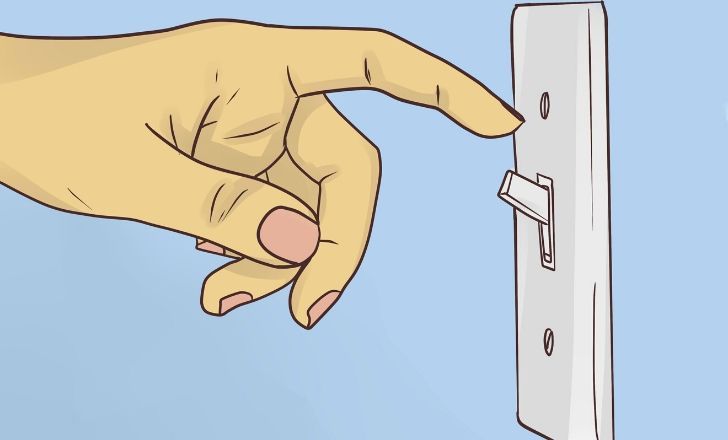Many celebrities these days try to “break the internet”, Kim Kardashian being the most prevalent of them.
This got me thinking, we all realize you can’t literally break the internet literally, but can it be turned off?
Before we discuss whether it can indeed be turned off, let’s go through what the internet actually is.
What Actually Is The Internet?

The internet is made up of essentially interconnecting routers and cables.
Your home router goes to the ISP (Internet Service Provider i.e. Comcast, AT&T, TalkTalk, etc), and they forward your data, or packets, on to the next ISP and so on and so forth.
Sometimes it crosses countries until it reaches its target and the ISP forwards it to the relevant person reversing the process.
99% of communication connected across the world is done via cabling called “submarine communications cables” run under the sea.
These can be hundreds of thousands of miles long and can be as deep as Everest is tall.
There Is No Single Off Switch

Right, down to it, the issue with turning the internet off is that the internet isn’t actually run or controlled by one central location; there is no kill switch as it were.
As we discussed above, the internet is provided by ISPs.
To shut down the internet these companies would need to unite across the world and simultaneously shut down to have full world-wide internet blackout.
Countries That Had An Internet Blackout

Now, in a country-by-country sense, this is much more plausible and has happened. The issue lies with how much the government controls the ISPs.
Egypt
On January 28, 2011, 88% of the internet across the country was shutdown.
This was because the government owns the main service provider; Telecom Egypt and with the large protests at the time over then-President Hosni Mubarak, the government decided it would be the best course of action.
Syria
On May 7, 2013, Syria had a country-wide internet blackout for 20 hours, apparently due to a severed internet cable but many believe it was done by the government to stifle revolt.
Iran
In March 2013 blocked all access to VPN’s (Virtual Private Networks), these were essentially a way of bypassing government web filters.
The Maldives
In 2004, Maldivian president Abdul Gayoom cut the entire country’s access to the Internet after protests rose against his regime.
Some nations have their own internet closer to that of an intranet including North Korea with Kwangmyong.
I’d like to stress that these issues aren’t solely in the countries stated above; North Korea, Burma, China, and many others have all experienced issues both regionally and nationally.
Some countries just filter web access dramatically, even sometimes to the degree of stopping access to Google search.
Ways ISP’s Shut Down The Internet

There are many ways an ISP would shut down the internet, two examples would be either physically which is done by flicking devices off or disconnecting them, or digitally by such methods as editting a routing table, a list of who’s who and how to get there.
Here in the Western world we have much less chance of this occurring, with many countries having legislation in place regarding this issue.
The USA
In the US, the Protecting Cyberspace as a National Asset Act 2010 was a bill introduced to the Senate stating if the president declares a cyber emergency, the Department of Homeland Security could “issue mandatory emergency measures necessary to preserve the reliable operation of covered critical infrastructure”.
This could mean ordering specific computers, networks or websites to be disconnected from the Internet, this is currently on the Senate legislative calendar.
The UK
In the UK, there are two pieces of legislation which give the Government power to order the internet’s suspension.
The Civil Contingencies Act & the 2003 Communications Act can tell ISPs to shut down their operations or by closing internet exchanges.
Under the Communications Act, this has to be done by the Culture Secretary, currently The Rt Hon John Whittingdale MP.
Many other Western countries have similar legislation more focused on filtering, France for example have the Loppsi Act 2011 which blacklists certain sites.
In Conclusion

So overall, the internet cannot be instantaneously shut down with some magical switch.
But in theory, if the world wide co-operation of ISPs was there and the legislation ignored, then the world could sink into an age of the internet blackout, where the internet capabilities of new devices null and void, and the world of Twitter and cat pictures decimated.
A dark, dark day for us all I’m sure you would agree!
With our freedom of speech and other rights so strongly upheld you can Google, stream, share and do whatever you want without concern of the web shutting down.

















